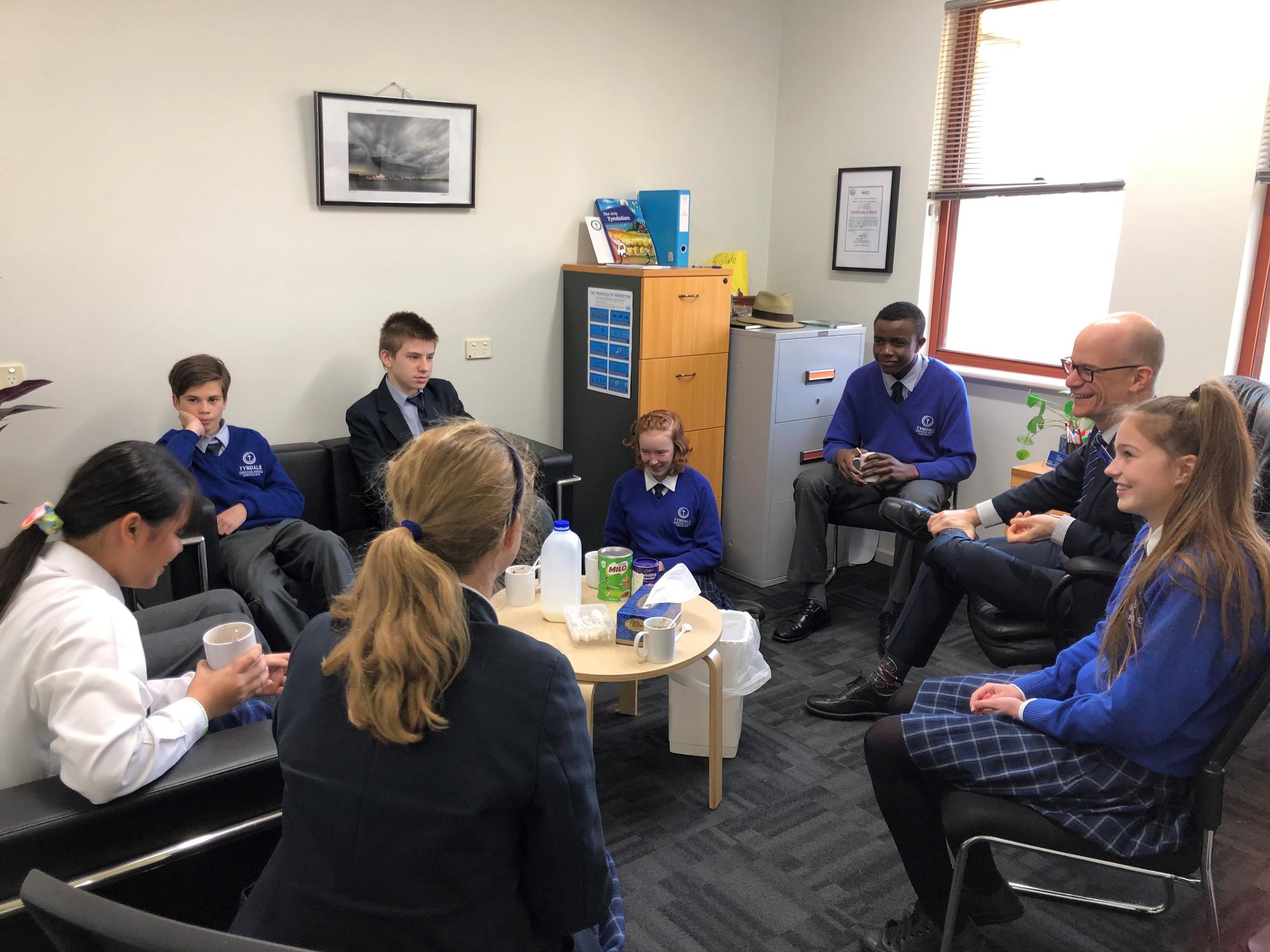Principal's Page

When do you have the difficult conversation?
One of the privileges of leadership is that you are often more involved in the most challenging aspects of learning, such as when a person is making repeated poor decisions or feels stuck and acts out of frustration. Clearly, maintaining a peaceful demeanour and trying to hear all perspectives are important for helping that person work through the matter. Also, always respecting the person, no matter what you personally think about their situation, enables you to avoid judgement.
Judging a person’s situation can often limit your capacity to help, or even cause that person harm. I know I am far from expert at holding these conversations, but because I have had to have them over the years, I hope I can offer encouragement to others in their own conversations with people they are helping.
I am not necessarily thinking about the immediate moment after a challenge has arisen. I am also thinking of the early preventative conversation and the later post-event reflective conversation. The first type helps build resilience, prepare for the road ahead and to be armed with situation/age appropriate information. The second is about non-punitive guidance or coaching to see what can be learned for next time.
The next time your child faces one of these challenges please consider bringing the matter immediately to the attention of a staff member at school. Clearly, your child’s main teacher is always a ‘go to’ person. In addition, we have counsellors, members of the senior leadership team, a nurse, a chaplain and other staff who are willing and able to offer advice of how best to support your child.
Educating your child will always be a partnership, that starts at home, and continues with our staff at school. The more often we communicate about all aspects of the children’s learning, the stronger we make the partnership.
Ecclesiastes 4:12 states “A cord of three strands is not easily broken.”
Have a great weekend.
Sam Cheesman
Principal
